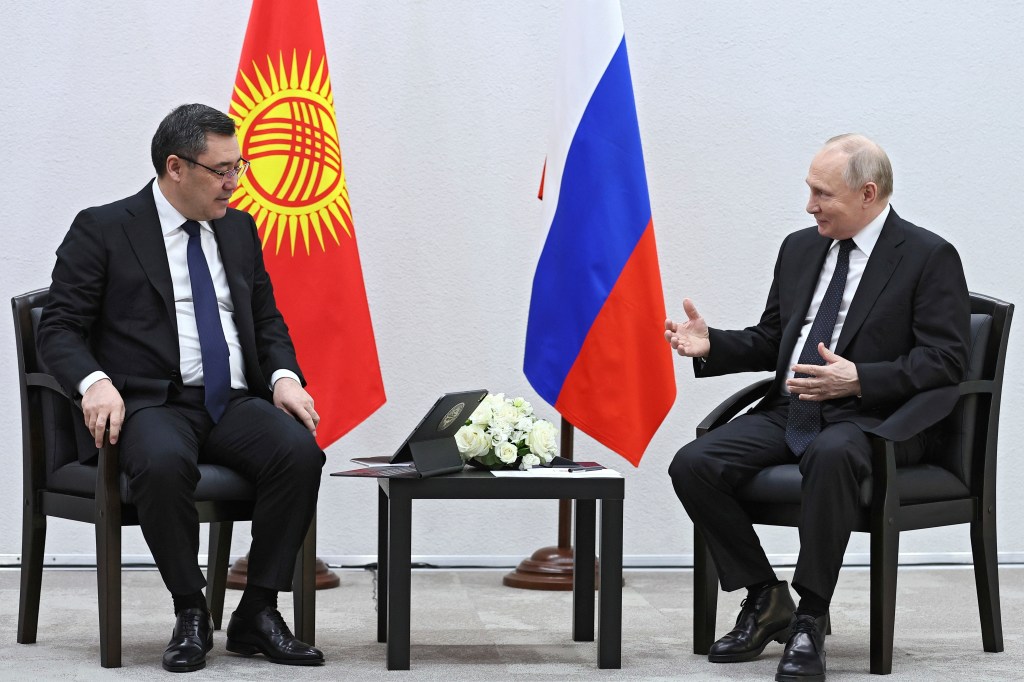New York, September 5, 2024—The Committee to Protect Journalists calls on Kyrgyz authorities to drop their threats against two independent online news outlets over reports about President Sadyr Japarov on the grounds they contain “false information.”
In a September 4 letter, Kyrgyzstan’s culture and information ministry threatened to block access to Novye Litsa in 24 hours unless it deleted an August 30 article connecting a Russian political strategist linked to Yevgeny Prigozhin, the deceased leader of the Russian mercenary company Wagner, to Japarov’s 2021 election campaign. The outlet complied with the order but defended the accuracy of the article.
The ministry also demanded that the Kyrgyz Service of the U.S. Congress-funded Radio Free Europe/Radio Liberty, known locally as Radio Azattyk, remove a radio report covering the Novye Litsa story or face a similar block.
“By issuing threats against Radio Azattyk and Novye Litsa over reports looking into President Sadyr Japarov’s alleged political strategists, Kyrgyz authorities have once again demonstrated that the ‘false information’ law is used for shielding the reputations of top state officials, not for countering disinformation,” said Gulnoza Said, CPJ’s Europe and Central Asia program coordinator. “Defamation allegations should be weighed against evidence— not the opaque whims of officials sitting in the halls of power. The false information law must be repealed.”
The ministry cited a 2021 law, which allows it to block websites it deems to contain “false information.”
In 2022, authorities blocked Radio Azattyk’s websites and in 2023 ordered the outlet to close, only reversing their decisions after the outlet had deleted a video about border clashes. This year, prosecutors shuttered and liquidated Kloop, a local partner of the global Organized Crime and Corruption Reporting Project, after blocking its website which featured a series of corruption investigations.
Presidential press secretary Askat Alagozov said on Facebook that if Radio Azattyk’s reporting was found to “deliberately slander” Kyrgyzstan’s leadership, “the question of whether we need such an outlet may be put on the agenda.”
Since Japarov became president in 2021, Kyrgyz authorities have launched an unprecedented crackdown on independent reporting in a country previously seen as a regional beacon for the free press.
Editor’s note: Typos in the caption and penultimate paragraph were corrected.
